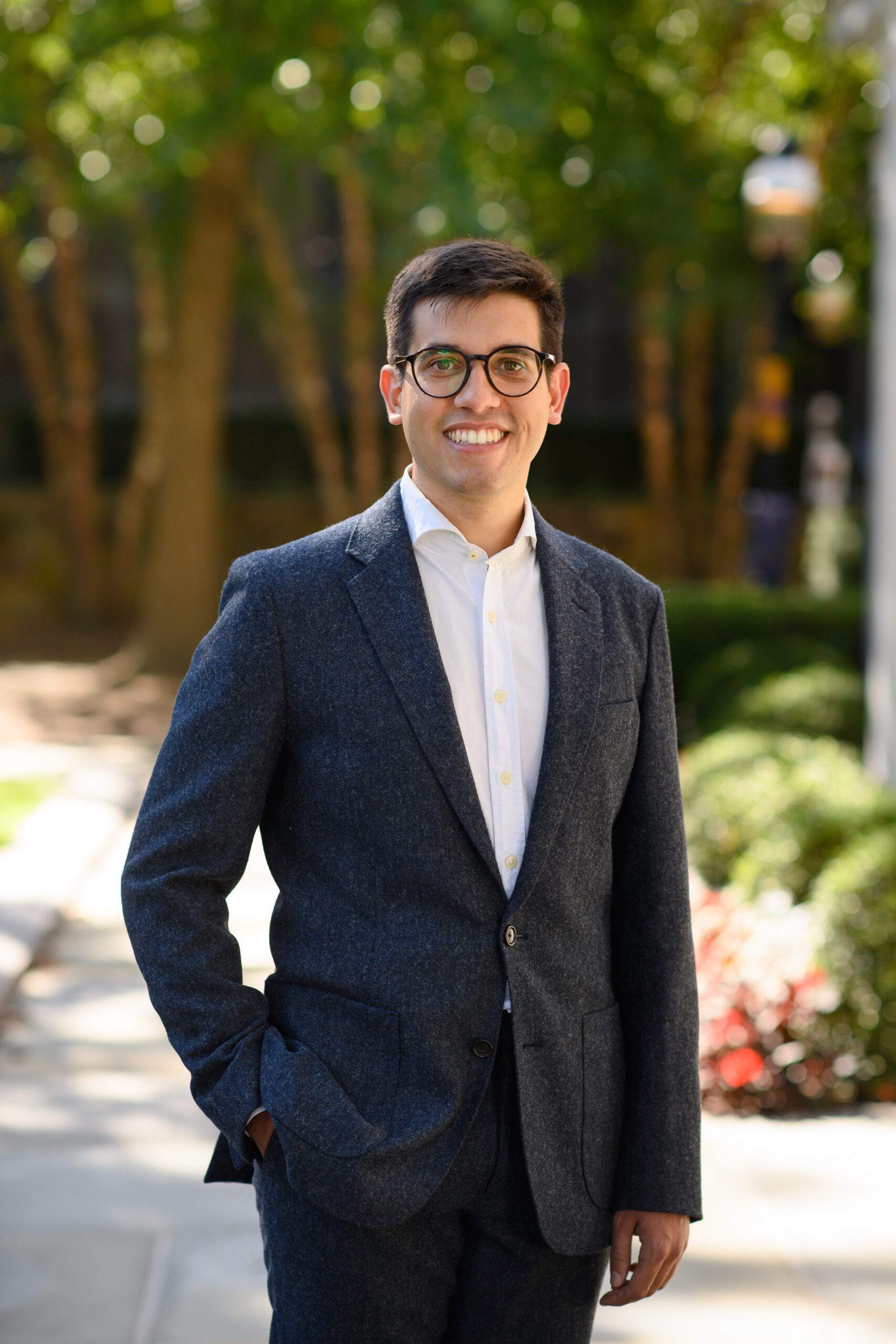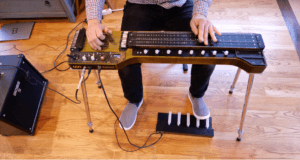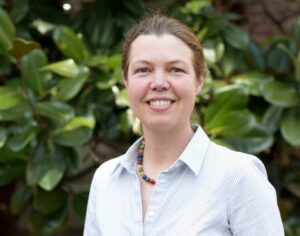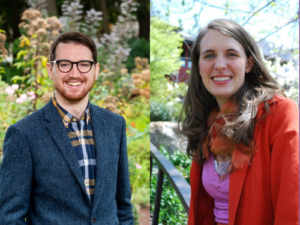The Princeton University Department of Music is proud to congratulate graduate student Marcel Camprubi, who has been awarded the Alvin H. Johnson AMS 50 Dissertation Fellowship for his dissertation “Al-Fārābī’s Lines of Thought: Notations and Histories of Music Theory from Abbāsid Baghdad (762–1055).” The AMS 50 award will provide Camprubi with ongoing support throughout the 2023-24 academic year as he completes and defends his dissertation.
In “Al-Fārābī’s Lines of Thought,” Camprubi, whose research broadly focuses on music of the Arabic Middle Ages, narrows his focus to examine the role of music theory and notation in Baghdad during the Abbāsid Caliphate through the work of prominent music theorist al-Fārābī (870-950 AD). Coming of age amidst the backdrop of two key historical moments — the Arabic Book Revolution and an explosion in translations of scientific and philosophical works from ancient Greece — al-Fārābī contributed to the development of musical notation in the Arabic context, producing among the earliest Arabic treatises on music.
“We used to think that notation in the Arabic context in the medieval period was an oddity, only used in a very limited way in certain treatises. The evidence that I put on the table suggests otherwise — that there might have been a wider use of notation than we traditionally thought.” — Camprubi
Through literary anecdotes and historical evidence, Camprubi paints a picture of a rich and complex history of music scholarship in the Arabic context, one which was not always in harmony with the practical approach of music performers. In one anecdote cited by Camprubi in his dissertation, a music scholar asked the most famous musician of the period a rudimentary question about the Arabic lute that anyone who has played the instrument would not need to ask. “Since the scholar had only been reading theoretical books and ancient Greek treatises,” Camprubi explains, “he didn’t know the answer. The performer became extremely mad at him and made a big fuss. It just goes to show the tension that existed between performers and scholars in the ninth century as we start seeing translations of Greek works coming into the Arabic context.”
“[There was a] tension that existed between performers and scholars in the ninth century as we start seeing translations of Greek works coming into the Arabic context.” — Camprubi
Just as translation served as the spark for medieval Arabic theorists to engage with music in new ways, Camprubi hopes that his own translations of Arabic treatises and other texts may spark renewed interest in a field that has not received much attention in recent years.
“This is a field that has had a strange generation gap. There’s a generation of scholars such as Eckhard Neubauer or Owen Wright who did a lot of phenomenal work — work that I am now building upon.” — Camprubi
Camprubi’s own interest in the world of al-Andalus (the term scholars use to refer to the former Islamic states in modern-day Spain and Portugal) grew out of the many childhood summers he spent in southern Spain, where Islamic heritage suffuses the culture and the built environment. During his formative undergraduate years, Camprubi became interested in early music, which ultimately led him to Oxford, where he completed a Master’s in Medieval Studies focused on acquiring language skills (Arabic and Latin) and learning about paleography (the study of deciphering manuscripts). (It was also during his undergraduate studies in Barcelona that Camprubi met the professor who would later inspire him to pursue a PhD not only in the United States, but at Princeton: former visiting professor from 1989-90 Maricarmen Gómez Muntané.) The skills that Camprubi acquired along the way are far from common among scholars. Indeed, unfamiliarity with the Arabic language and hindrances to access of archival materials are among the primary obstacles keeping scholars from the field. Throughout his graduate studies, Camprubi has corresponded with various colleagues at other institutions who are also pursuing PhDs in medieval Arabic music; they share materials and learnings and work together to build upon the work of the older generation. Indeed, a major objective of Camprubi’s own dissertation work has been to translate treatises, stories, and biographies of musicians from Arabic to English so that he might make the materials accessible to researchers at large and thereby spark a revitalization of the field.
Looking toward the new academic year, Camprubi is continuing to write the remaining sections of his dissertation and also preparing for one final research trip. In addition to the AMS 50, Camprubi was also the recipient of the E. K. Rand Dissertation Grant from the Medieval Academy of America. Building on archival research performed in Leiden in the Netherlands, where there is an expansive collection of Arabic manuscripts, and also closer to home, in Princeton’s very own Firestone Library, which is home to one copy of al-Fārābī’s major treatise, the Great Book of Music, Camprubi will travel to Istanbul, supported by the E. K. Rand grant, to visit three other manuscripts that he uses in his dissertation.
“There’s a joy of working with a material object, encountering past musicians and past thinkers in this very direct way through the materiality of the manuscript. I am really grateful for the resources at Princeton; it would have been really difficult to write a dissertation like this at other institutions. And I’m very grateful to the AMS and the Medieval Academy for their support as well.” — Camprubi
Speaking via Zoom on a recent beautiful spring day, Camprubi expressed his gratitude for the continued support of the members of his committee and for his primary advisor Jamie Reuland, herself a medieval music scholar specializing in thirteenth- and fourteenth-century Venice: “Jamie has a wide-spanning academic curiosity and a clinical eye when it comes to reading and discussing drafts. I’ve learned so much from her in the process of revising my writing.”
As for the AMS 50 itself, Camprubi is humbled to have been awarded such a prestigious honorific from an organization that has meant so much to him since his move to the States six years ago: “I’ve been attending AMS conferences since I started the program here at Princeton. I presented at their conference last November in New Orleans. I’m subscribed to their journal, and I always read the articles that come out of it. Looking at the names of previous awardees on the AMS website, I came across the names of many scholars who went on to have great careers, and many medieval music scholars too that I deeply admire, like Anna Zayaruznaya, who’s now at Yale, Emily Zazulia, who’s at UC Berkeley, and Rebecca Maloy, who’s at University of Colorado, Boulder. It’s really an honor to be part of the same group.”
Congratulations, Marcel!
In Other News

What Actually Happens At An Academic Music Conference?
Feb 1, 2024
Every November, thousands of music theorists and musicologists descend upon the vast ballrooms of America’s metropolitan convention hotels for their annual academic society meeting. This past November, the American Musicological Society (AMS), which celebrates its ninetieth annual meeting in 2024, and Society for Music Theory (SMT) held their joint conference in the Mile-High City of Denver, Colorado.
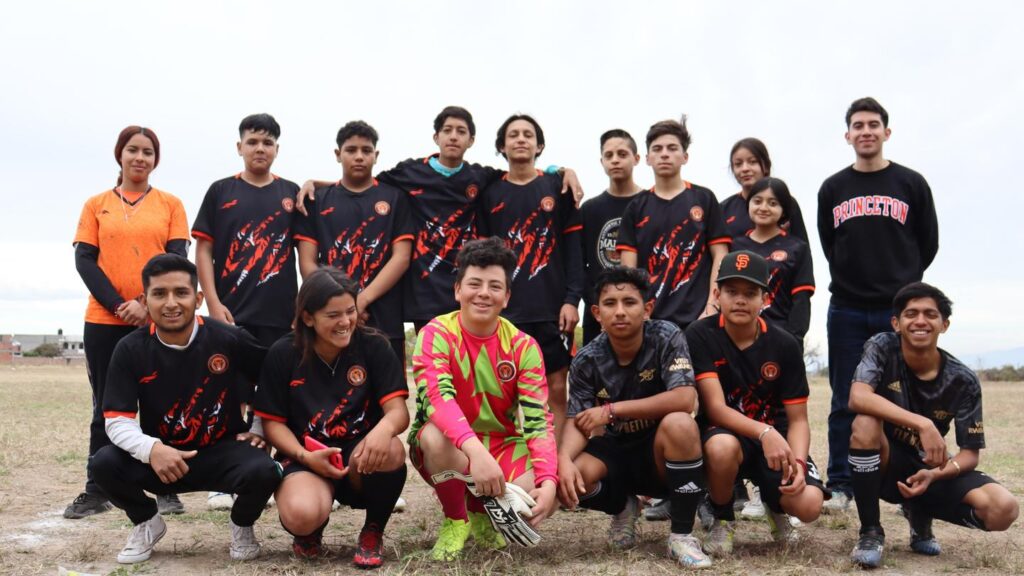
It takes a village: Projects for Peace winner Carlos Cortez ’24 and the people of Zináparo bring music and soccer to their youth
Jan 23, 2024
It takes a village: Projects for Peace winner Carlos Cortez ’24 and the people of Zináparo bring music and soccer to their youth
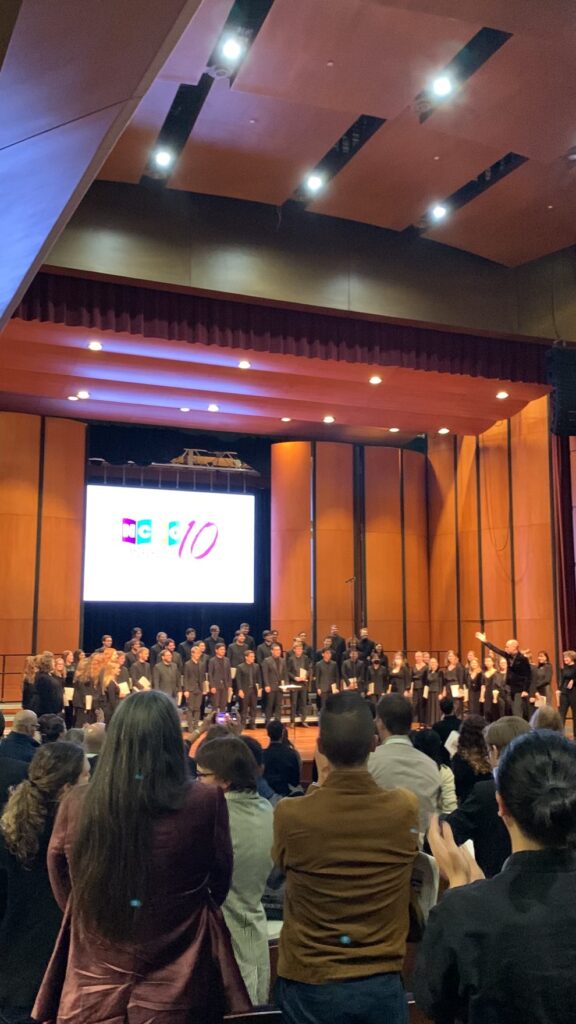
Princeton University Chamber Choir and Alumni Perform at National Collegiate Choral Organization Biennial
Dec 12, 2023
The Princeton University Chamber Choir, joined by twenty-five alumni, recently made their mark at the National Collegiate Choral Organization (NCCO) biennial conference.

